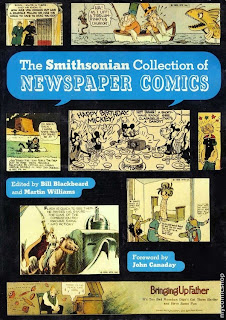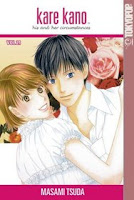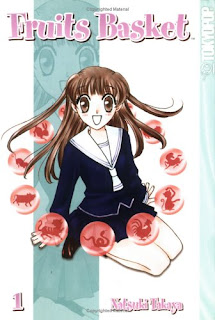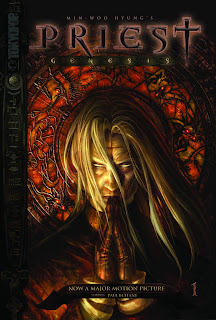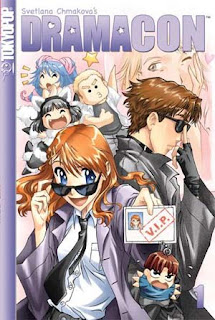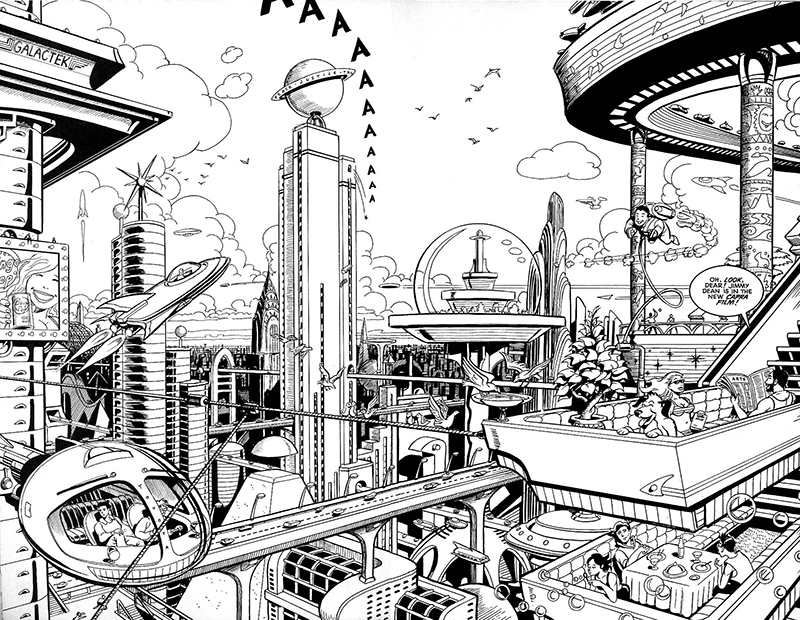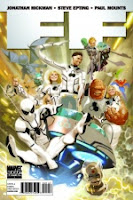Notable commentary on the sad demise of one of the industry's most prominent North American manga publishers:
Long Live the Manga Revolution (a.k.a. Stuart J. Levy pisses readers off):
The facts are simple. Borders—our biggest customer—went bankrupt, owed us a lot money, which they didn’t pay us, and as a result we are in a very challenging situation, and have had to react quickly to the situation. We did need to let a few people go—and it’s horrible for everyone involved to ever have to let people go. We will continue to do everything we can to evolve the manga business and we very much appreciate the support of our fans, our partners, our creators, and out retail customers.
-
Stuart Levy
Fourteen years later, I’m laying down my guns. Together, our community has fought the good fight, and, as a result, the Manga Revolution has been won –manga has become a ubiquitous part of global pop culture. I’m very proud of what we’ve accomplished – and the incredible group of passionate fans we’ve served along the way (my fellow revolutionaries!).
-
Stuart Levy
Meanwhile, just yesterday Tokyopop Stu Levy blithely
Tweeted:
Wow #GDC2011 [Game Developers Conference] is blowing my mind. Why have I been stuck in such an old-school, out-of-touch industry for so long?! (yes I mean books!)
To which one is tempted to reply, “I dunno, Stu. Why don’t you just leave?”
Not only does his tweet show an appalling lack of tact, but Levy’s ADD has always been the biggest obstacle to Tokyopop’s success. To give him his due, he comes up with great ideas — Tokyopop was way ahead of the curve on many things, from unflipped manga to the iPhone — but he seldom sticks with them long enough to bring them to fruition. It’s been obvious for years that he is bored with books; I remember watching him at NYAF a few years ago, dashing around with a film crew, making a mockumentary about cons. Remember that movie? No? Me either. This past summer, he sunk what must have been a boatload of cash into a bus that he (or someone) drove around the country with a bunch of college interns, promoting his America’s Greatest Otaku “reality show” (currently running on Hulu). Then he lays off one of his most experienced editors. The short-sightedness of this is mind-boggling. To make money, you have to sell something people want to buy. Tokyopop has teetered on the edge of irrelevancy for a long time, but good editors and marketers keep pulling it back. And then they lay off the editors and marketers.
Tokyopop cut
significant numbers of staff a couple of months ago, blaming the Borders bankruptcy and the resulting losses to the publisher. At the time, Levy was seen publicly referring to publishing as an “old-school, out-of-touch industry”, which caused some consternation over his tone-deafness and timing. Now, his
personal message in response to the company closing is perhaps inappropriately self-congratulatory. Included was this militaristic comment:
I’m laying down my guns. Together, our community has fought the good fight, and, as a result, the Manga Revolution has been won.
Maybe the revolution was won a long time ago and Stu Levy got bored during the time of peace.
-
Scott Cederlund
A Media Company:
The collapse of Tokyopop is mostly due to the Borders crash, manga piracy and the general bad economic situation, on top of Kodansha taking their licenses back from Tokyopop, leaving them with no must-have titles. That's all the major reasons right there.
However, the collapse of Tokyopop is also informative because it shows how futile it is to run a comics company to try to sell movie licenses... at least, futile for a 'manga' company. For practically as long as Tokyopop and Mixx existed, even BEFORE Mixx published manga, Stu Levy was talking about selling the movie rights to manga -- first it was Parasyte. 14 years after Levy first blogged about trying to develop a Parasyte movie, what did Tokyopop manage to make? One TV show (which I haven't seen) which isn't directly based on any of their properties. One direct-to-DVD movie, "Van Von Hunter." And the "Priest" movie, which is so different from the original source material it may as well have a different title.
-
Jason Thompson
Maybe TP just went around things wrong. If Stu Levy wanted to make a media company, I feel like he should have started it that way instead of trying to get into movies and other media through comics. That notion has always seemed backwards to me- if you want to make a movie, fucking just make a movie! It might not be easy, but it makes a lot more sense than making comics to make movies. That's like making cookies and hoping they will turn into a cake in the oven!
-
Becky Cloonan
Bigger Problems:
Tokyopop pioneered the format that caused manga to catch on among teen readers: Unflipped, 200-page, black-and-white trade paperbacks selling for ten dollars each. They published Sailor Moon, the first commercially successful shoujo manga in the U.S., and kept the momentum going with popular series such as Fruits Basket (which ran neck and neck with Naruto in the sales rankings for a while) and their manga adaptations of Erin Hunter’s Warriors prose novels. Unfortunately, when Fruits Basket ended, Tokyopop was left without a flagship series, and they lost rights to many of their other popular series when Kodansha pulled their licenses in preparation for starting its own U.S. publishing arm.
Levy had more terrific ideas in a week than I’ll have in five years, but it often seemed like good initiatives never got the financial support or managerial oversight they needed in order to succeed. The TOKYOPOP website is a telling example: at the height of MySpace fever, Levy re-imagined the company’s web page as a social network where teenagers could share pictures, discuss manga and anime, and post fan fiction. Yet no one at TOKYOPOP anticipated the need for site moderators to remove copyright-protected material, prevent flame wars, or curate worthwhile content. As a result, the site quickly degenerated into a semi-literate mess, with high school students excoriating their French teachers and sharing tips on where to read illegal scans of favorite manga.
At the same time, however, I can’t help but wonder if TOKYOPOP’s real problem was deeper and more fundamental than Levy’s leadership. A quick glance at TOKYOPOP’s current competitors — Seven Seas, VIZ, and Yen Press — suggests that American manga publishers need a bigger, better-heeled partner to help them weather financial downturns, finance new initiatives, and distribute their product to retailers. (Dark Horse is a notable exception, though it has a large stable of original comic properties and merchandise to shore up its finances.) Almost all of the manga publishers that have folded in the last three years were small, independent companies that lacked the monetary resources to compete for A-list licenses and subsidize operations. That TOKYOPOP persisted as long as it did is testament to the quality of its books, and to the loyalty it engendered in fans whose first manga were Sailor Moon, Magic Knight Rayearth, and Parasyte.
Much as I'd like to blame all of this on Stu Levy and his pouring of TP's money into his pet projects, I think it was Borders that really broke things here. The chain was a big big manga haven, and bookstores are where the sales are - online purchasing is simply not as big as brick and mortar buys. When Tokyopop switched to Diamond as its distributor, then Diamond announced that it would stop shipping to Borders... it was over, really. Yes, there's Barnes & Noble, but they never got behind manga the way Borders did.
-
Sean Gaffney
Some people kind of demonize [Stu Levy] online for ignoring and mucking up the manga publishing side of things, but I felt like he was a non-entity holding a carrot on a stick over the heads of everyone in publishing and really making them work for it. Everyone was trying hard to please him, probably when pleasing the fans should have been number one.
That being said, I wish that Stu had brought in someone else to be totally in charge of publishing. Someone with the talent and passion to publish good books that were commercially successful (or at least, moderately successful) or run Tokyopop more like a smaller manga publisher rather than the powerhouse it used to be.
Then again, losing the Kodansha licenses, having so many titles fail and the loss of Borders as a strong seller was perhaps too huge a blow in the long run, something that was too hard to fix no matter what. It probably would have helped to try and wipe the slate clean, but is that even a possibility when you think of all the Japanese licensors snubbed in the process? You certainly can’t publish manga in another language if no one wants to give you the rights to do so. Unless you’re a scanlator. And you can’t make money if you don’t have a solid place to sell your product.
-
Daniella Orihuela-Gruber
I Hate Stu Levy:
Circumstances and a few shrewd business deals handed Stu Levy the sun and the moon and a vigorous manga imprint besides. Key employees were able to negotiate deals with Japanese publishers that were the envy of the [granted, small niche] market and right up to the bitter end: Tokyopop was releasing books the fans wanted, the critics enjoyed, and which were selling. Divested of the OEL experiments and licensing missteps [we ALL want to forget Cine-Manga] it seemed like a leaner, focused Tokyopop would help lead the manga industry into the next decade.
All that going for it…
except the CEO was making reality TV shows, musing publically over why he’d ‘wasted’ so much time with books, and generally pissing on his fan base and core customers...
I Hate Stu Levy. His current ‘charitable’ efforts in Japan, no matter how necessary and admittably helpful in the ongoing crisis, smack of self-service and condescension. His abandonment of the business because it’s too much ‘work’ — even while honest work was producing books we all enjoyed — is lax at best and contemptuous at worst.
Also, Stu is closing Tokyopop while grimly hanging onto all rights to the OEL books that might be worth something — without putting any effort into realizing that potential — or releasing rights back to the original creators.
Also check out also the
Manga Out Loud Podcast
MangaBlog link roundup
Deb Aoki link roundup
The Comics Reporter link roundup
The Beat contains the TOKYOPOP statement and Levy's personal message
Matt Thorn castigates its low pay and cost-cutting practices
